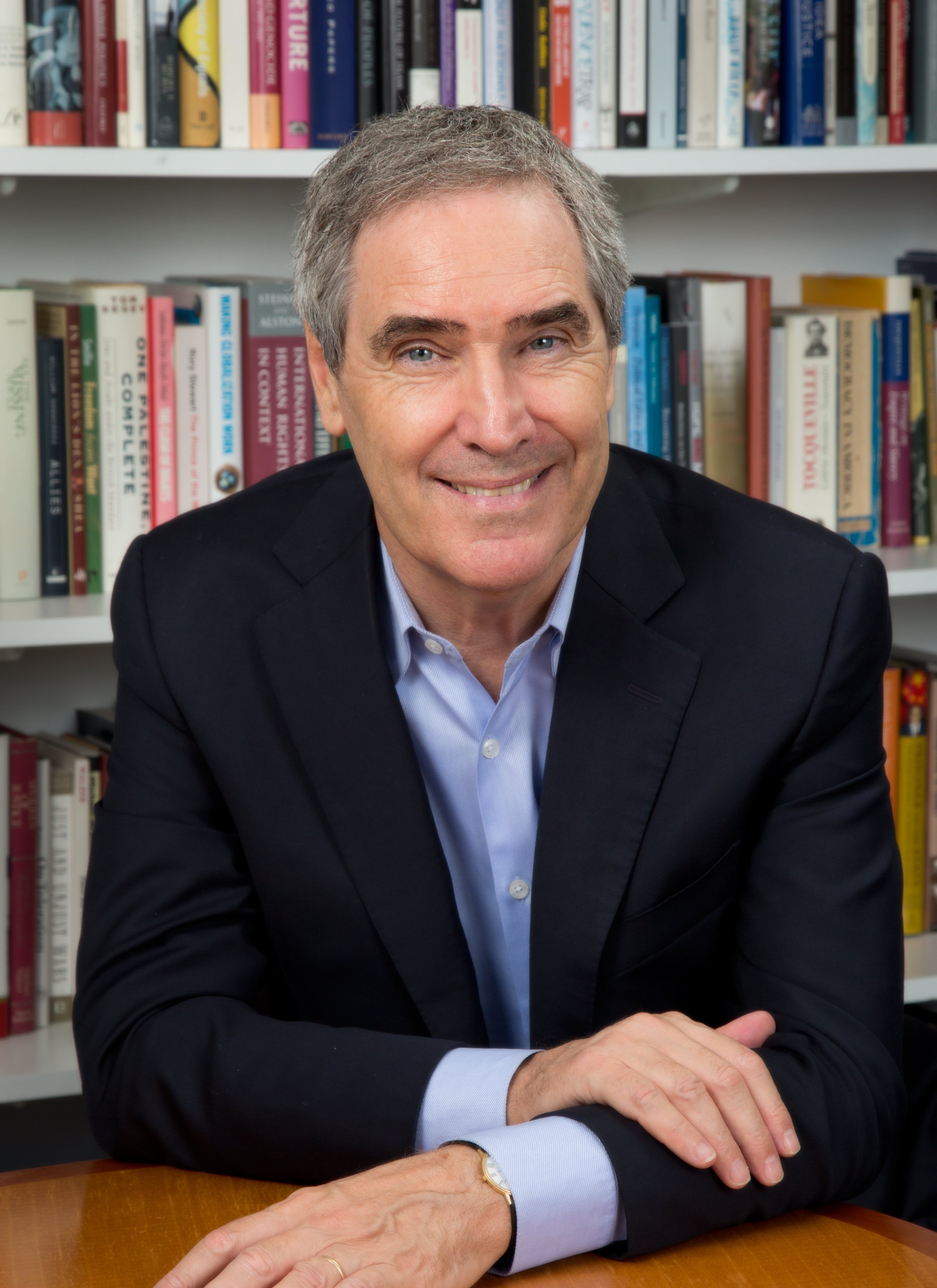The number of people displaced from their homes worldwide has reached record levels, with most of the public attention focused on the nearly 4.4 million Syrians who were forced to flee their nation in 2015, due to the crisis brought on by the war in Syria.
The issue of people seeking new homes and safe harbor has escalated political and social conflict about immigrants and refugees at home and abroad. It’s a topic Michael Ignatieff — the former leader of Canada’s Liberal Party, a widely published author on international affairs and the Edward R. Murrow Chair at Harvard University’s JFK School of Government — will tackle when he presents a primer on his views about the challenges we face in Syria.
Ignatieff, pictured at left, will speak about these and other issues this at 7 p.m. Thursday, Feb. 25, in the Memorial Union on Arizona State University’s Tempe Campus, in a free lecture titled “What Citizens Owe Strangers: Human Rights, Migrants and Refugees.” To advance the event, which is produced by ASU's Center for the Study of Religion and Conflict, Ignatieff spoke to ASU Now about the moral concerns of denying refugees entrance and the threat of terrorism that lies inside these displaced people.
Q: Many countries try to balance moral concerns about taking in refugees with political concerns such as the need to keep their nation secure from foreign threats. How should countries reconcile these sometimes conflicting issues?
A: The U.S. takes in 65,000 refugees a year and the security vetting for each individual is rigorous. More than 800,000 refugees have been accepted for resettlement in the U.S. since 9/11 and of these only six have been charged with offenses relating to terrorism. It's impossible to eliminate risk completely when we fulfill our legal and moral obligations to refugees, but it is possible to manage these risks so that they do not endanger the safety of the nation.
Q: Do you see any religious dimensions of the current migrant and refugee crisis consuming Europe, and if so, what are they?
A: Some Europeans are concerned that Muslims cannot be successfully integrated into European societies, but Islam has been part of European society since the Moorish conquest of Spain in early medieval times and many European societies — France and Germany in particular — have large, successfully integrated Muslim populations, drawn originally from North Africa and Turkey. The problem is not Islam itself, but radical extremism among a fraction of European-born Islamic youth. Since the Paris attacks in November 2015, Islamic leaders — and most European Muslims — have denounced radical extremism and sought to distance their faith from violence.
Q: How can the U.S. effectively address the underlying causes of the refugee problem such as the civil war in Syria and the rise of ISIS? Is the current U.S. strategy against ISIS sufficient, or what else should be done?
A: U.S. policy in the Middle East, from the invasion of Iraq in 2003, to the failure to hold Assad for the use of chemical weapons in 2013 and now the unwillingness to stop the Assad regime's assault on Aleppo have all destabilized the region and contributed to the refugee flow. The Obama Administration has considered and rejected imposing a no-fly zone over Syria to protect civilians and prevent them from being driven into Turkey, Jordan and Lebanon. Now all the U.S. can do is attempt to persuade President Putin and President Assad to agree to a cease-fire that stops the killing and reduces the volume of the refugee flow into Europe. But the refugee flow will continue, because Syria has been destroyed and many refugees say they will never return as long as Assad remains in power. As a result, the refugee exodus is turning into a permanent emigration into the front-line states — Jordan, Lebanon, and Turkey — and also into northern Europe, chiefly Germany. The U.S. should be resettling some of these refugees here in the United States and it should be joining with others states, including the Arab states in the region, to fully fund the international agencies, UNHCRThe Office of the United Nations High Commissioner for Refugees (UNHCR), also known as the UN Refugee Agency, is a United Nations agency mandated to protect and support refugees at the request of a government or the UN itself and assists in their voluntary repatriation, local integration or resettlement to a third country. Its headquarters are in Geneva, Switzerland and is a member of the United Nations Development Group. The UNHCR has won two Nobel Peace Prizes, once in 1954 and again in 1981. — Wikipedia and WFPThe World Food Programme is the food assistance branch of the United Nations and the world's largest humanitarian organization addressing hunger and promoting food security. — Wikipedia, that are providing food and shelter to the more than 4 million refugees in the region.
Top photo: Women and children among Syrian refugees striking at the platform of Budapest Keleti railway. Photo courtesy of Wikimedia Commons
More Law, journalism and politics

Native Vote works to ensure the right to vote for Arizona's Native Americans
The Navajo Nation is in a remote area of northeastern Arizona, far away from the hustle of urban life. The 27,400-acre reservation is home to the Canyon de Chelly National Monument and…

New report documents Latinos’ critical roles in AI
According to a new report that traces the important role Latinos are playing in the growth of artificial intelligence technology across the country, Latinos are early adopters of AI.The 2024 Latino…

ASU's Carnegie-Knight News21 project examines the state of American democracy
In the latest project of Carnegie-Knight News21, a national reporting initiative and fellowship headquartered at Arizona State University’s Walter Cronkite School of Journalism and Mass Communication…

